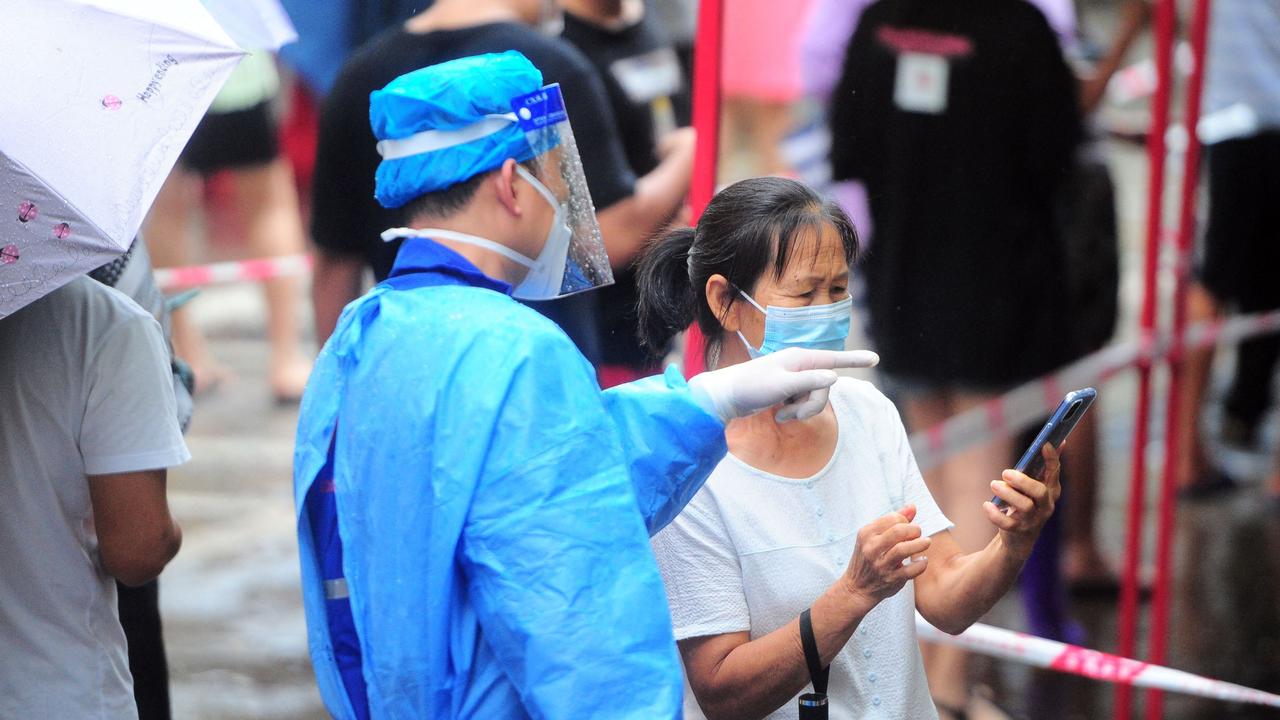China lockdown: 22 die of starvation under China’s harsh lockdown in Xinjiang
Grieving family members have confirmed that at least 22 people in a Chinese city have died as the nation cleaves to a radical strategy.
At least 22 people belonging to China’s repressed Uyghur and Turkic minorities died on one day due to starvation or a lack of medical treatment, it’s been reported.
The deaths were dated to September 15, with Radio Free Asia confirming the figure with local police in the northern Xinjiang city of Ghulja and grieving families. The area is known for its high Turkic-speaking Uyghur population which has been subjected to crimes against humanity and genocide by the Chinese government.

Since Ghulja went into Covid lockdown in early August, members of the city’s half-million Uyghur and Turkic Muslim ethnicities have wildly complained of not having adequate access to food or medical treatment and supplies.
Speaking to the ABC, Australian-based Uyghur human rights activist Inty Elham said she believed China’s strict Covid lockdown were being used as a tactic to suppress ethnic minorities.
“Basically, in addition to the severe human rights abuses, as we know, Uyghurs outside the camps are basically under house arrest,” she said. “They’ve been under these lengthy Covid lockdowns.”

Another woman told the national broadcaster that her aunt, who lives in China’s Xinjiang area, was facing severe food shortages.
“The only way she could get vegetables was from her ethnic Han neighbour. She didn’t know how the neighbour received supplies,” she said.
‘Serious human rights violations have been committed’
Earlier this month, Australia’s Foreign Minister Penny Wong said the long-held claims of China’s abuse towards Muslim minorities was “pretty harrowing”.
This was in light of a damning report from UN human rights commissioner Michelle Bachelet that detailed the human rights abuses and atrocities committed against the ethnic groups. To date, China has denied all claims related to persecution of the Uyghurs.
“Certainly, the report concludes that serious human rights violations have been committed in Xinjiang,” she told ABC Radio National.
“I think the issue of how it is that in a world where we see a lot of human rights violations, how we can continue to promote and protect and assert the importance of human rights,” Senator Wong said.
“I think that is one of the ways we can use supply chains to ensure we don’t promote, we don’t condone, and we don’t financially support forced labour.”

China continues with harsh lockdowns
China is the last major economy welded to a zero-Covid strategy and officials are under pressure to curb virus flare-ups swiftly ahead of a key political meeting in mid-October.
In June, China reduced the length of mandatory quarantine for inbound travellers from 21 to 10 days, but a lack of flights and sky-high ticket prices remain a major obstacle to travel.
On Monday, millions of people in the Chinese megacity of Chengdu emerged from a Covid-19 lockdown that had closed schools, disrupted businesses and forced residents to stay home for over two weeks.

With a population of 21 million, southwest China’s Chengdu is the largest Chinese city to shut down since global finance hub Shanghai imposed a strict two-month lockdown in April, leaving many residents scrambling for food.
During the strict lockdown, some residents confined to their homes could not even flee when a strong earthquake in a nearby part of Sichuan province reverberated through the city earlier this month, locals told AFP.
– With AFP





